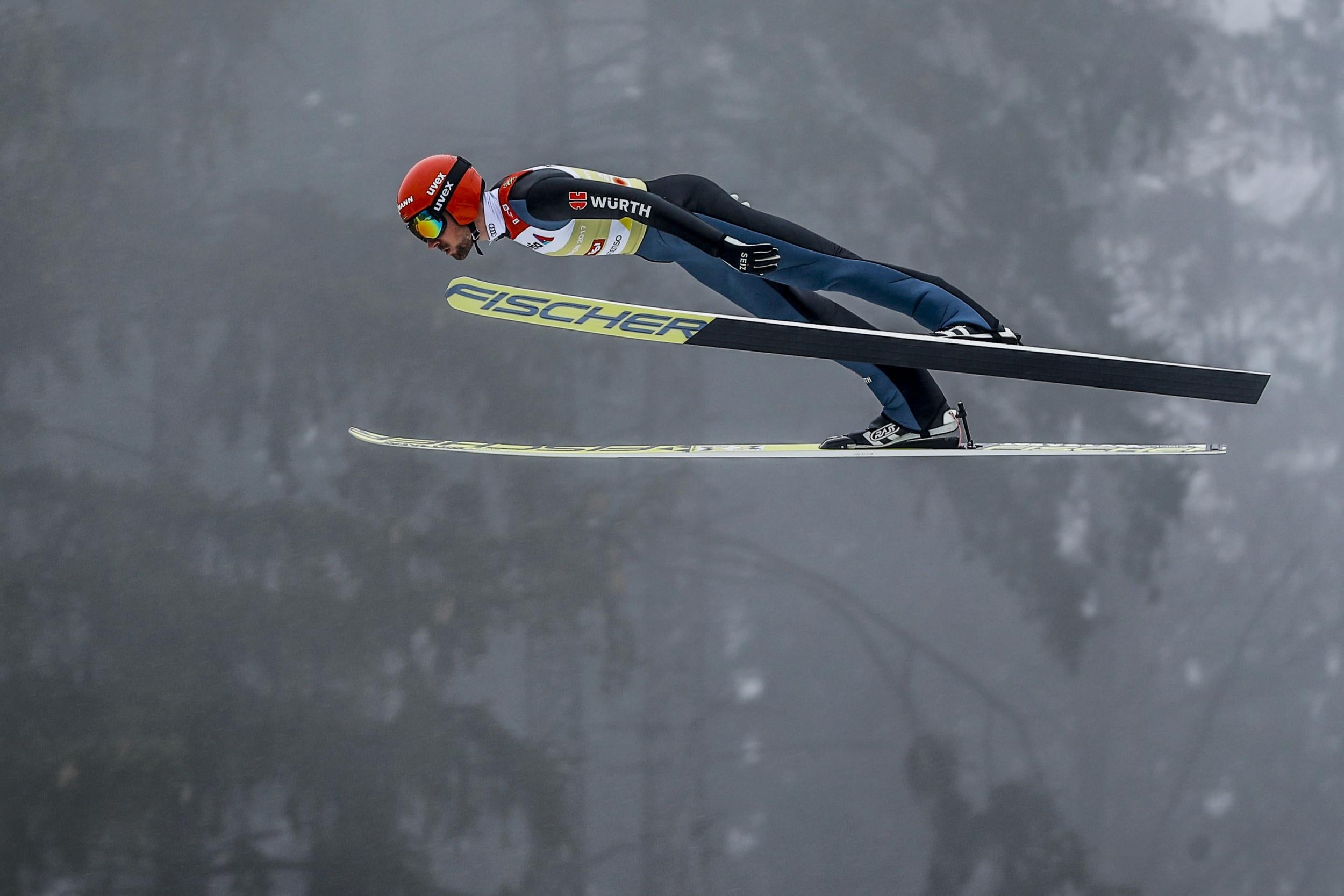What is Nordic Combined and why won’t there be a women’s event
The sport will be the only one at Beijing 2022 with exclusively male events

Your support helps us to tell the story
From reproductive rights to climate change to Big Tech, The Independent is on the ground when the story is developing. Whether it's investigating the financials of Elon Musk's pro-Trump PAC or producing our latest documentary, 'The A Word', which shines a light on the American women fighting for reproductive rights, we know how important it is to parse out the facts from the messaging.
At such a critical moment in US history, we need reporters on the ground. Your donation allows us to keep sending journalists to speak to both sides of the story.
The Independent is trusted by Americans across the entire political spectrum. And unlike many other quality news outlets, we choose not to lock Americans out of our reporting and analysis with paywalls. We believe quality journalism should be available to everyone, paid for by those who can afford it.
Your support makes all the difference.A founding sport of the Winter Olympics, Nordic combined competitions have been held at every Winter Games since the first in Chamonix in 1924.
It returns at Beijing 2022 with the events utilised in each of the last two Olympics maintained.
Three medals will be up for grabs, with two individual and one team event, comprised of different formats.
However only men will compete - no women’s events will be held in China, making Nordic combined the only sport at this Olympics to hold exclusively men’s competitions.
Here’s everything you need to know about Nordic combined ahead of Beijing 2022:
What is Nordic combined?
Nordic combined blends the two skills of ski jumping and cross-country skiing. Competitors must complete both disciplines in a single competition, with the size of the hill and length of the cross-country course varying across competitions. The first official competition is believed to have been held in 1892.
What events will be held at Beijing 2022?
Medals will be awarded in three separate competitions at the 2022 Winter Olympics, each held on a single day across afternoon (ski jumping) and evening (cross-country skiing) sessions.
The Individual (normal hill / 10 km) kicks off proceedings on 9 February, followed by the Individual (large hill / 10 km) on 15 February. The Team event, which will see all four competitors complete a leap on the large hill before a 4x5km relay, is on 17 February. These are the same events held at Pyeongchang 2018.
How does Nordic combined work?
Competitors complete the ski jumping section first, and are awarded points based upon distance travelled, landing and style in flight. The gaps between athletes scores translate to time differences for the cross-country skiing phase - the best scored competitor from the ski jumping starts first, followed by the second-placed competitor, and so on and so forth through the field.
Why are there no women’s events?
It had been intended for Beijing 2022 to mark the beginning of female Olympic participation in Nordic combined, but the IOC announced in 2018 that it felt the sport needed more time to develop a competitive women’s scene. It is expected that it may be introduced for the next Winter Olympics, which will be held in Turin in four years time.
Women’s events were added to the FIS Nordic Combined World Cup programme last season (2020-21), but only one event was able to be held due to the pandemic. Six have, however, gone ahead this season - every event has been one by formidable Norwegian Gyda Westvold Hansen, who also took victory at the inaugural World Championships in Oberstdorf last February.
Who are the medal contenders?
While Norway have traditionally dominated the sport, it was Germany who swept the gold medals four years ago, with Johannes Rydzek (large hill/10km) and Eric Frenzel (normal hill/10km) claiming individual success before joining with teammates Fabian Riessle and Vinzenz Geiger to take a commanding team victory.
Austrian starlet Johannes Lamparter leads the World Cup standings and will be a strong contender at his first Olympics twelve months since claiming two golds as a 19-year-old at the worlds. The well-rounded Austrian’s chief rival may well be Norway’s Jarl Magnus Riiber, who also took two golds home from Oberstdorf to take his career tally to four. Riiber finished fourth in both individual events in Pyeongchang, though did take away a silver in the team event, and it would be a real surprise if he does not come away with at least two medals this time around.
Join our commenting forum
Join thought-provoking conversations, follow other Independent readers and see their replies
Comments